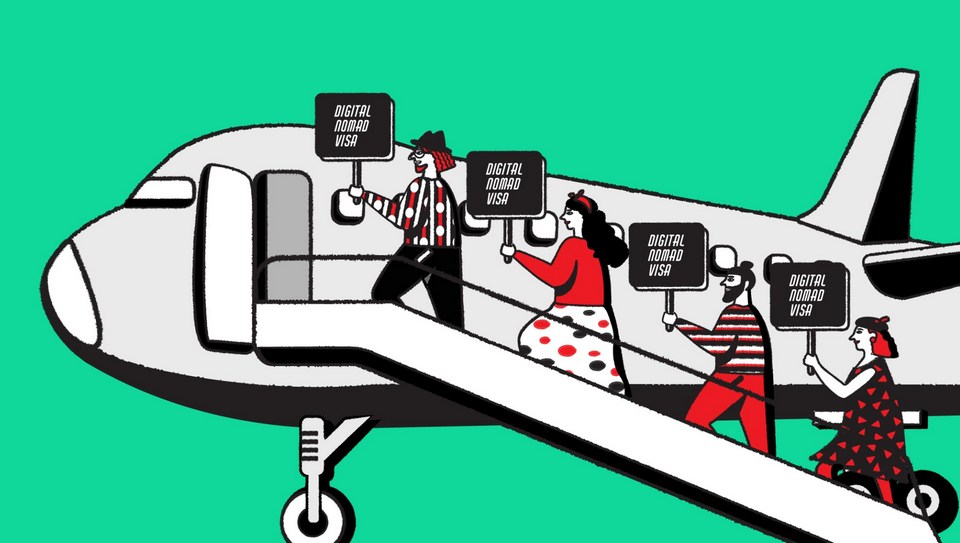
Proposals currently before the Thai Cabinet will dramatically expand the opportunities for some foreigners to work in Thailand without a traditional permit. According to the Tourist Authority of Thailand, the detail has already been agreed by the regulatory Board of Investment and the top-health committee, The Centre of Covid-19 Situation Administration.
The new rules would dramatically expand the opportunities for digital nomads to stay for up to four years without a work permit by obtaining the reformed, multiple-entry Smart visa. This visa dates back to 2018, but requires a large cash investment or a high salary and is complicated to obtain. In fact, only several hundred have been issued, mainly to high-salaried workers in hi-tech industries. Smart is not suitable for the typical nomad.
Under the latest guidelines, foreigners on tourist visas would be able to transfer to the four-year Smart visa provided they have an employment contract for at least six months, as well as proof of qualifications and experience. These revisions could suit many digital nomads, working on their on-line shop in a co-working space anywhere in the world. Such practices are already recognised with special visas in parts of Europe, the Caribbean and Mexico.

The global virus pandemic has accelerated the communities of digital nomads who are location-independent and use technology to perform their job. Meanwhile, the Thai government is encouraging working from home across all sectors, whilst on-line assisted learning for students is essential whilst schools and colleges remain closed. It is well known that many Thai children are being taught on-line, but illegally, by foreign nomads without contracts.
The current legal status of digital nomads in Thailand is indeed confusing. A website designer, for instance, might be ignored if his or her customers are foreign. But if they are mainly Thai, then he is competing with a Thai worker which creates a problem. A foreigner sitting in an apartment and teaching Chinese students online via Skype is technically in breach of the alien labour legislation, but such cases are not currently seen as a law-enforcement priority.
In separately-agreed moves to reduce the intransigence of Thai work permit law, businessmen can now visit the country for short spells on non-business visas. Foreign property owners can conduct their professional affairs without the threat of being reported to immigration authorities. The newly-empowered Elite visa carries the right to conduct limited work responsibilities. For foreigners with existing work permits, it is now easier to change jobs or to take a second one.
The Smart visa, if broadened sufficiently, could prove attractive to nomads since holders are excused 90 day reporting and the need for re-entry permits. They can bring to Thailand their family members who can also enjoy work or study privileges without traditional visa restrictions.



Inga kommentarer:
Skicka en kommentar